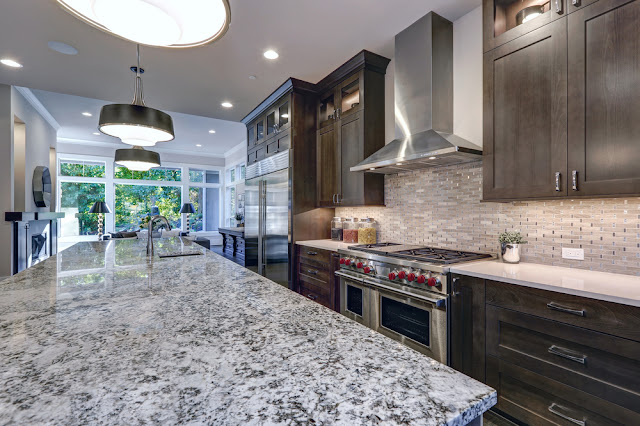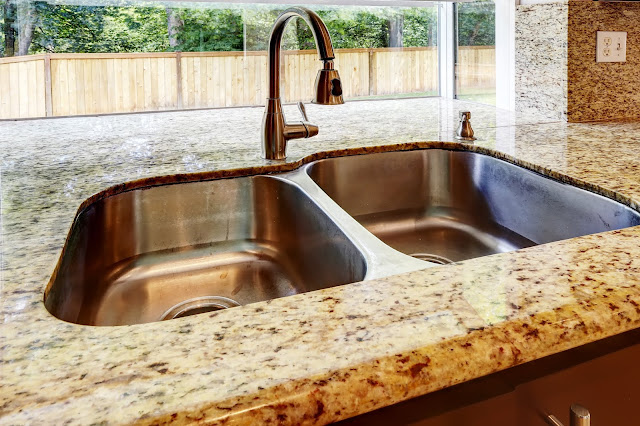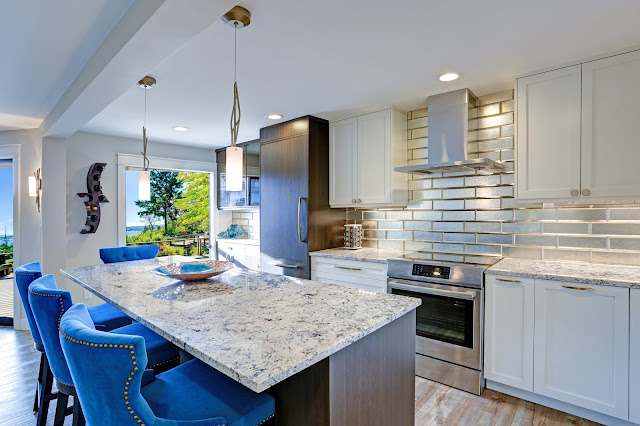Granite vs. Quartz
While they may not seem that important, countertops help set the tone for your entire kitchen. Because of this, it’s important to choose a countertop material that will not only hold up to the daily use of your kitchen, but one that also reflects your style. Granite used to be the top choice for countertops, but quartz – an engineered stone – is making it’s way to the top. Metro Marble & Granite knows that you can’t go wrong with either countertop, but with so many choices, we wanted to break down both the good and the bad for each material. If you’re shopping for new countertops, stop by the best countertop company at the Lake of the Ozarks.
Granite vs. Quartz
Durability
This should be at the top of your list when it comes down to picking new countertops. When it comes to granite and quartz, granite has been around a lot longer. Quartz is still relatively new. See how these two options compare when it comes down to durability:
Scratches – both granite and quartz are scratch resistant, but that does not mean they are indestructible. Scratching is still possible on countertops and great care should be taken. You can cut with knives on both granite and quartz, but it’s still best to use a cutting board.
Chips and cracks – granite is an extremely hard stone, but in comparison to quartz, it’s more prone to crack and chips, especially during installation. Quartz is stronger on the durability scale as it resists cracking and chipping over time.
Heat – when it comes down to handling heat, granite is the winner. Quartz can definitely handle heat, but when it comes to high temperatures and long periods of time, the resin within quartz can begin to discolor and turn white. Since granite is a natural stone, it is able to withstand very high temperatures.
While both granite and quartz each have weak spots when it comes to durability, they are both excellent choices to have in your kitchen and bathroom.
Maintenance
Granite is usually more porous, so in order to protect it from stains, it needs to be sealed every 1-3 years. By getting your granite re-sealed every few years, it is able to keep it’s shine and looks like it did the day it was installed. If it’s not sealed, over time it can become susceptible to stains absorbing in the tiny pores.
Quartz is nonporous and since it is an engineered stone, it does not need to be sealed. Because of this, quartz does require less maintenance than granite.
Cost
Just like anything else, you get what you pay for, and countertops are no different. Both granite and quartz are more expensive options, but you’re paying for the quality. The cost also depends on the type of granite you choose. Some granite slabs are less expensive than quartz, but as the quality increases, the price goes up as well. On average, granite prices range between $45 to $75 per square foot. Quartz prices range from $55 to $85 per square foot. Of course, if you were to choose a rare type of granite, your cost will reflect that. The higher quality and the nicer stone types mean a higher price tag.
Choosing the Best Option
When it comes down to quartz vs. granite, you have to pick the type of countertop that is right for you. You should base this decision off of your lifestyle, the look you’re going for, and of course, your budget. At Metro Marble and Granite, we are happy to help you choose the style you are looking for. If you are wanting to redo your kitchen and are looking to get quartz or granite countertops at the Lake of the Ozarks, stop by our showroom and see how we can help you.
Contact Us
Phone: (573) 552-0140
Teri@MetroMarble.com
2820 Bagnell Dam Blvd. Suite A-4 Lake Ozark, Missouri







Comments
Post a Comment